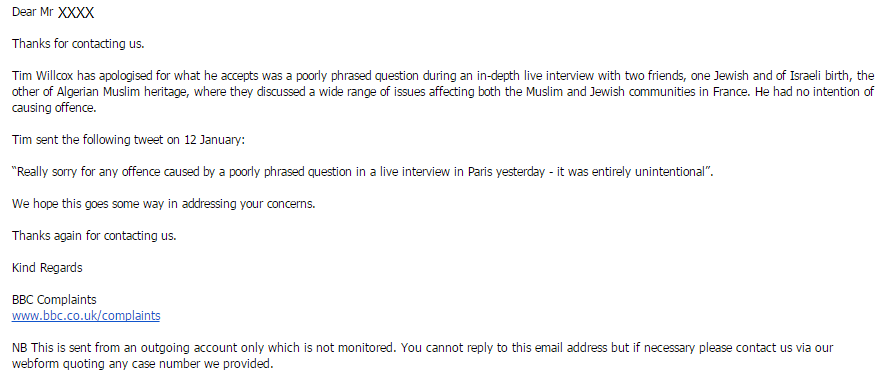The morning after the Israeli prime minister’s address announcing a temporary delay of his government’s efforts to advance legislation concerning the judicial system, the BBC World Service radio programme ‘Newsday’ aired several items relating to that topic, including commentary from the corporation’s former Middle East editor (now international editor) Jeremy Bowen.
Presenter Rob Young began (from 37:42 here) by asking Bowen “How big a crisis would you say this is for Israel?” to which Bowen replied:
Bowen: “Well it’s massive. Some people in Israel say it’s the worst internal crisis that they’ve ever had because what it shows is that the country is really deeply divided. Something like 60% of voters voted for this coalition government but there are hundreds of thousands on the streets protesting vehemently against what it is trying to do…” [emphasis added]
The coalition is comprised of six parties – Likud, United Torah Judaism, Shas, Religious Zionist party, Otzma Yehudit and Noam but the latter three ran on a joint list in the election in November 2022.
According to the results published by the Central Elections Committee, the Likud party received 23.41% of the unspoiled ballots, United Torah Judaism received 5.88%, Shas received 8.25% and the Religious Zionist Party (including Otzma Yehudit and Noam) received 10.84% of the vote.
In other words, the parties which make up the current coalition together received a total of 48.38% of the votes rather than 60% as erroneously claimed by Bowen.
Moreover, as noted by the Israel Democracy Institute, the difference between the number of votes cast for the Right-wing bloc (including the Jewish Home party, which did not pass the electoral threshold with its 1.19% of the votes) and the opposition bloc (also including parties which did not pass the electoral threshold: Meretz and Balad) was around 30,000 ballots.
“In terms of votes received there was near parity between the two blocs. The Netanyahu bloc outpolled the anti-Netanyahu bloc by about 30,000 votes. This is less than the equivalent of one Knesset seat. In practice the election was a tie.
Here the electoral system intervened. While usually first-past-the-post systems (as in the United States, Britain, Canada, and other countries) are associated with results that often do not reflect the voters’ preferences, the same can happen in proportional systems like Israel’s. This time, in fact, despite the near tie in votes received, the system produced a clear result: 64 Knesset seats for the Netanyahu bloc.”
Jeremy Bowen’s portrayal of the result of the election is hence not only inaccurate but hinders audience understanding of background to the story on which he was brought in to comment.






FFS have they not put bigoted Bowen out to grass yet. Or is his Iranian pension pot not full enough yet? #defundthebbc